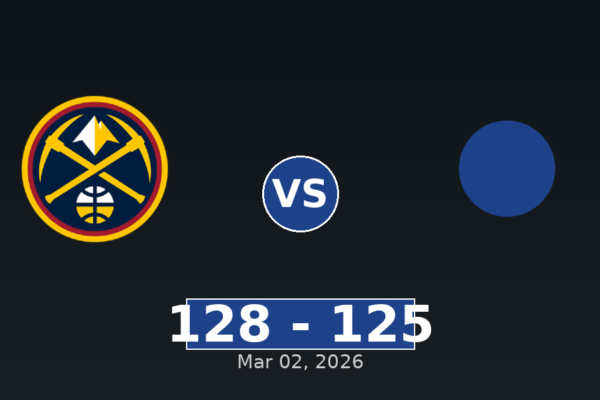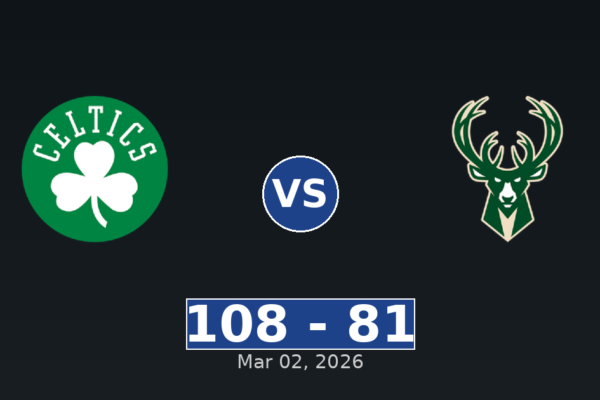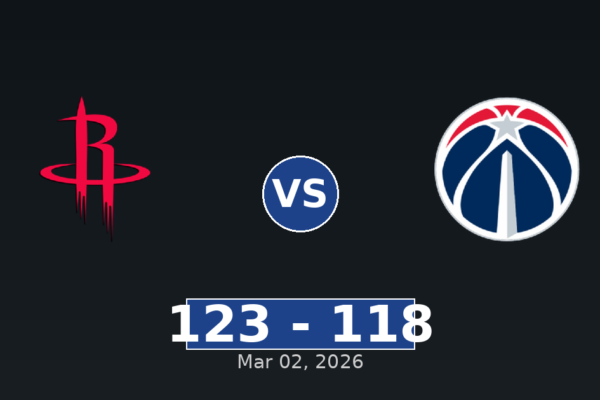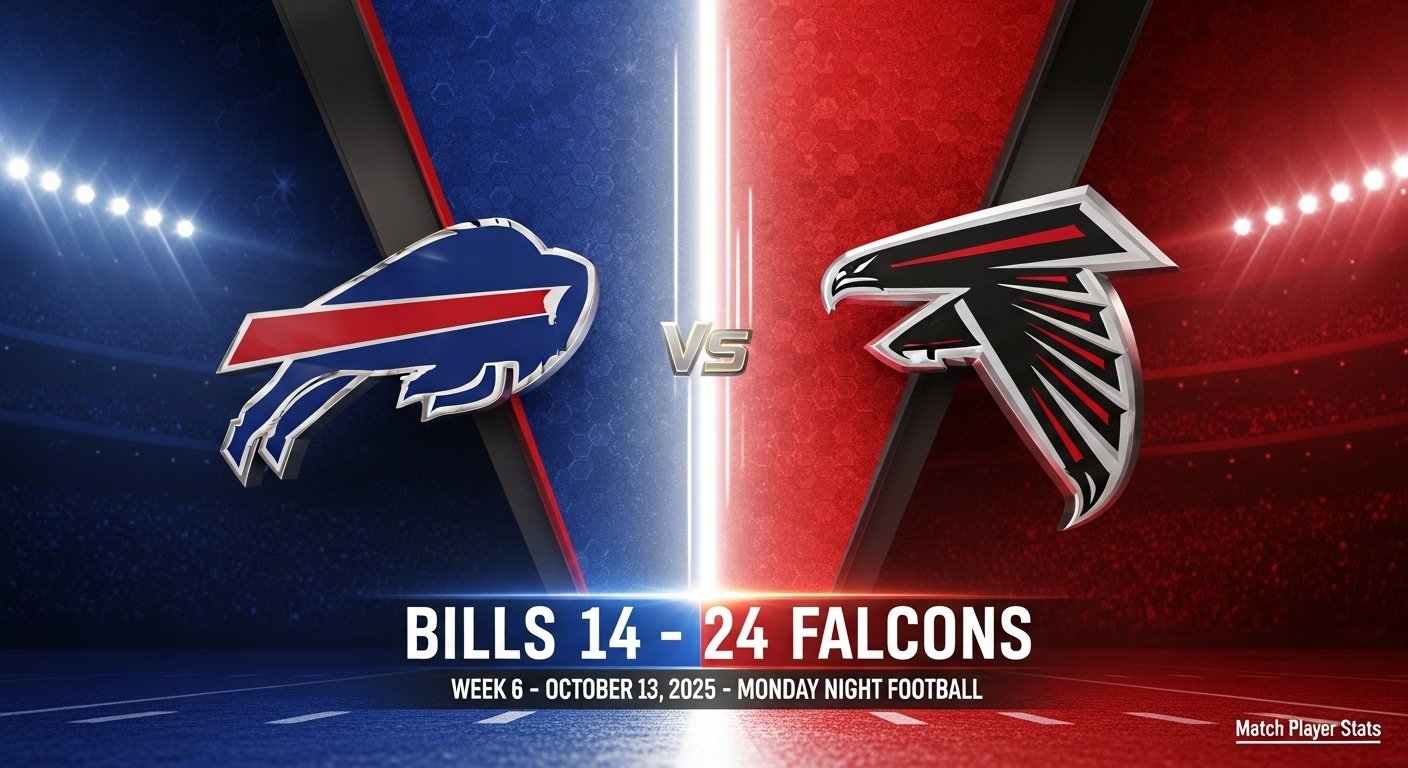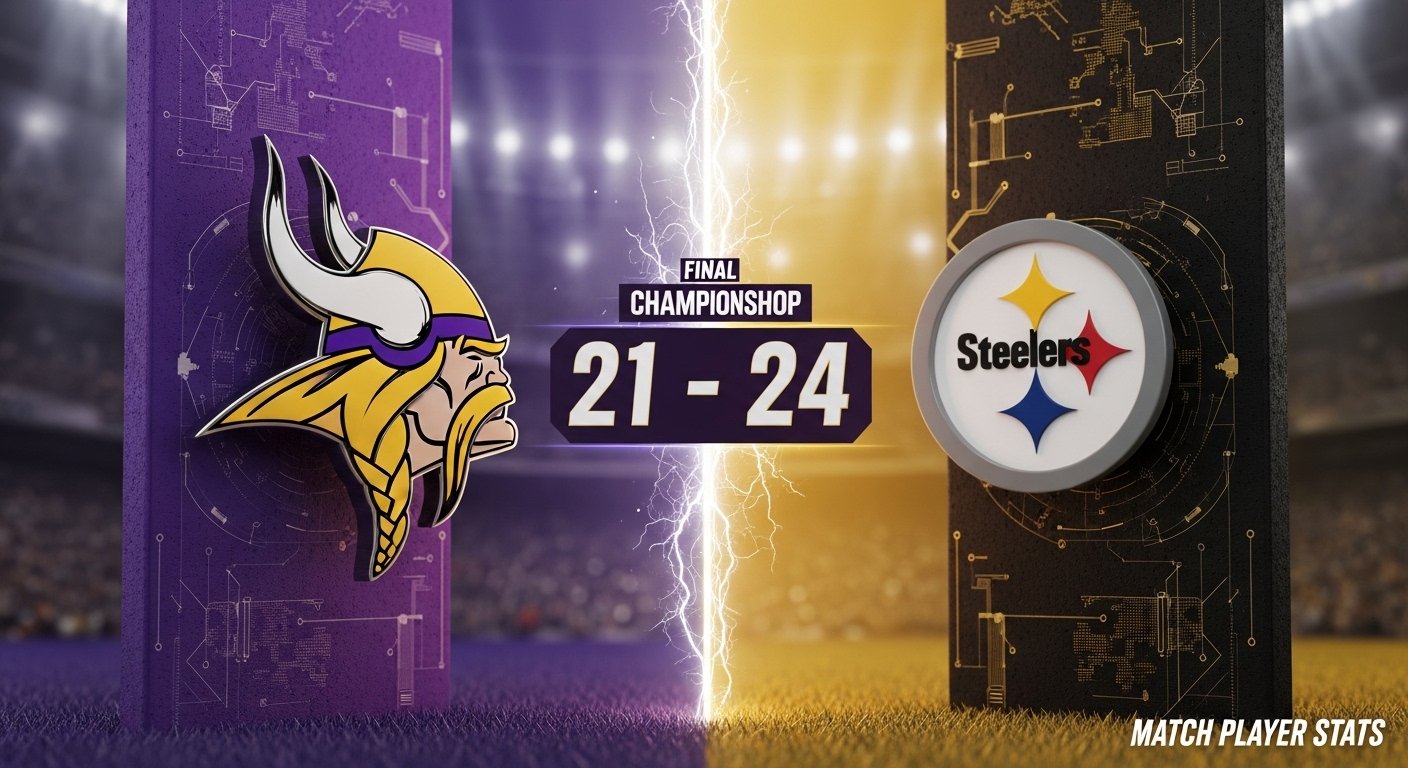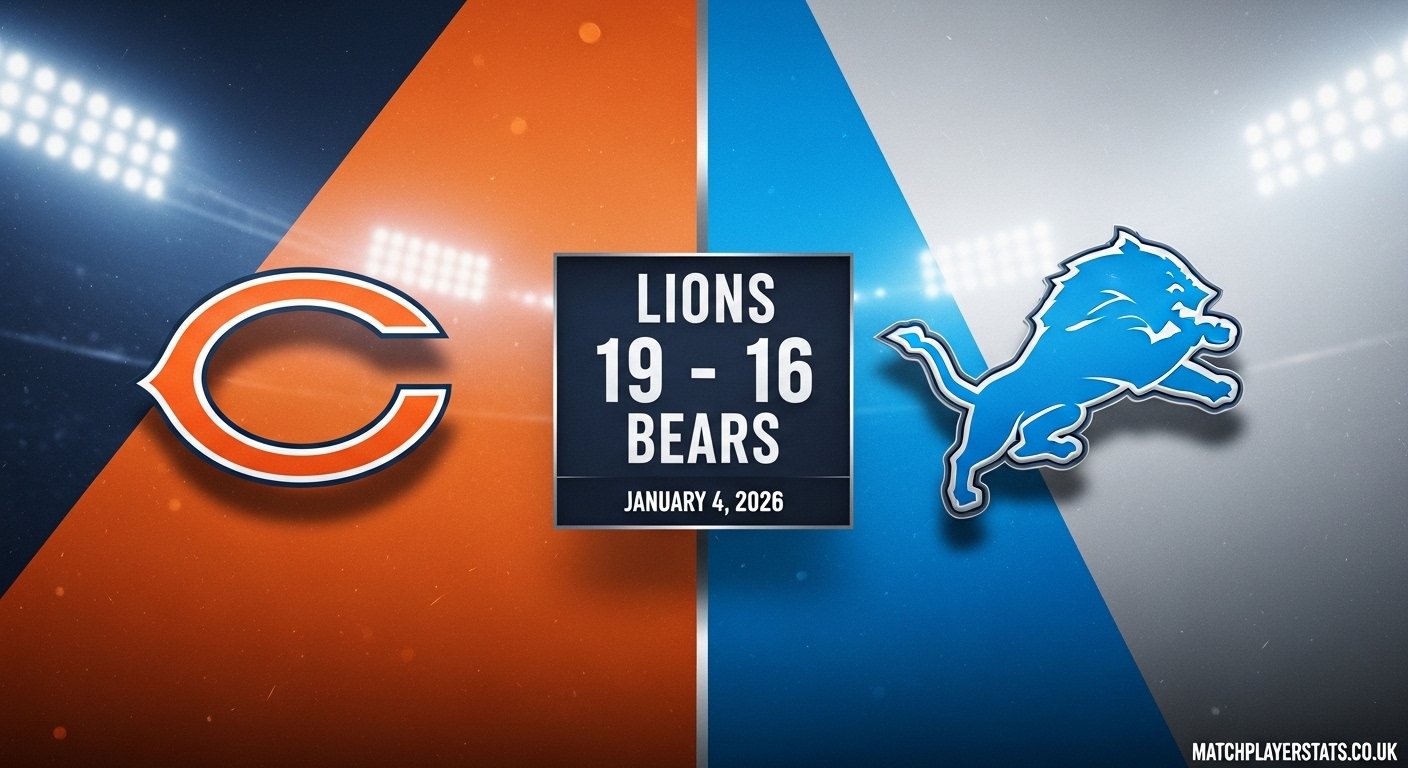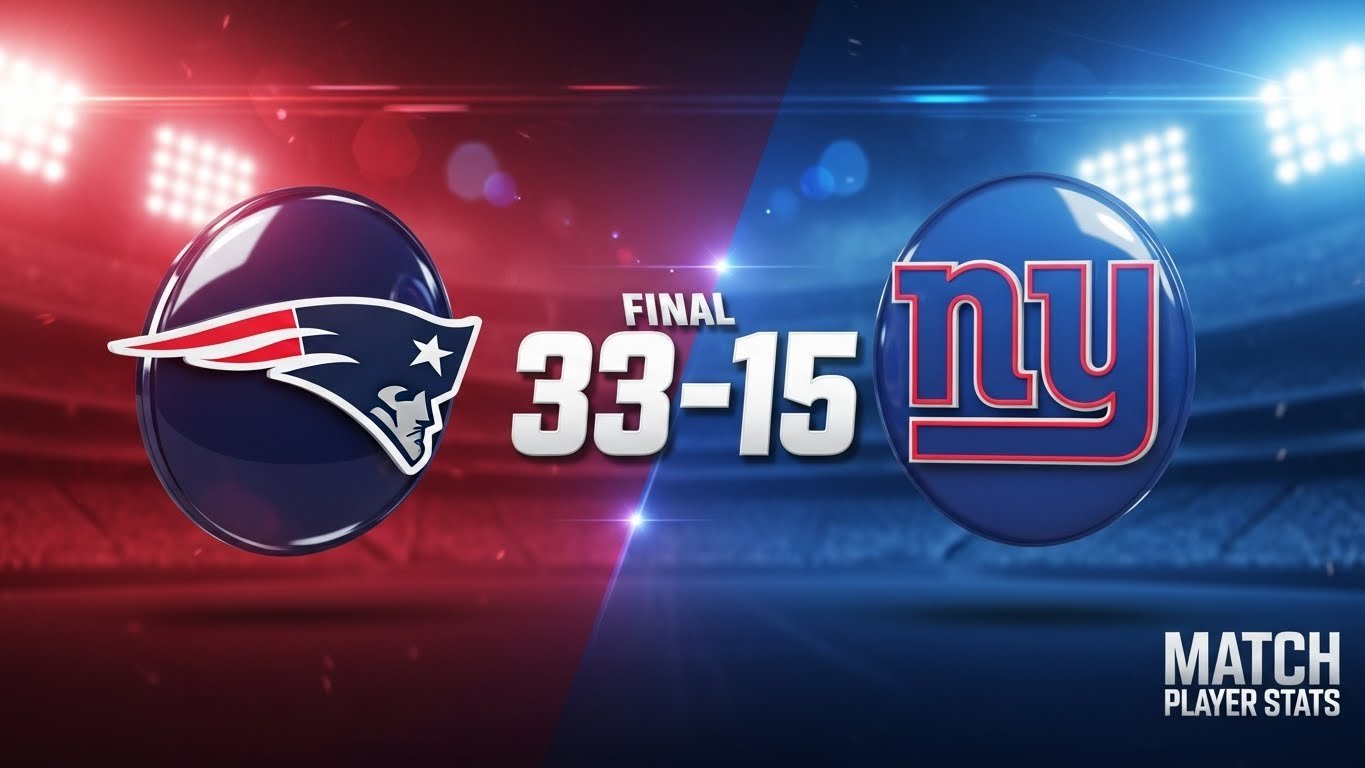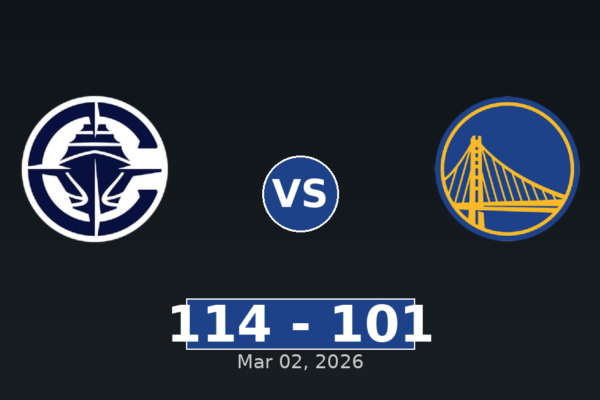
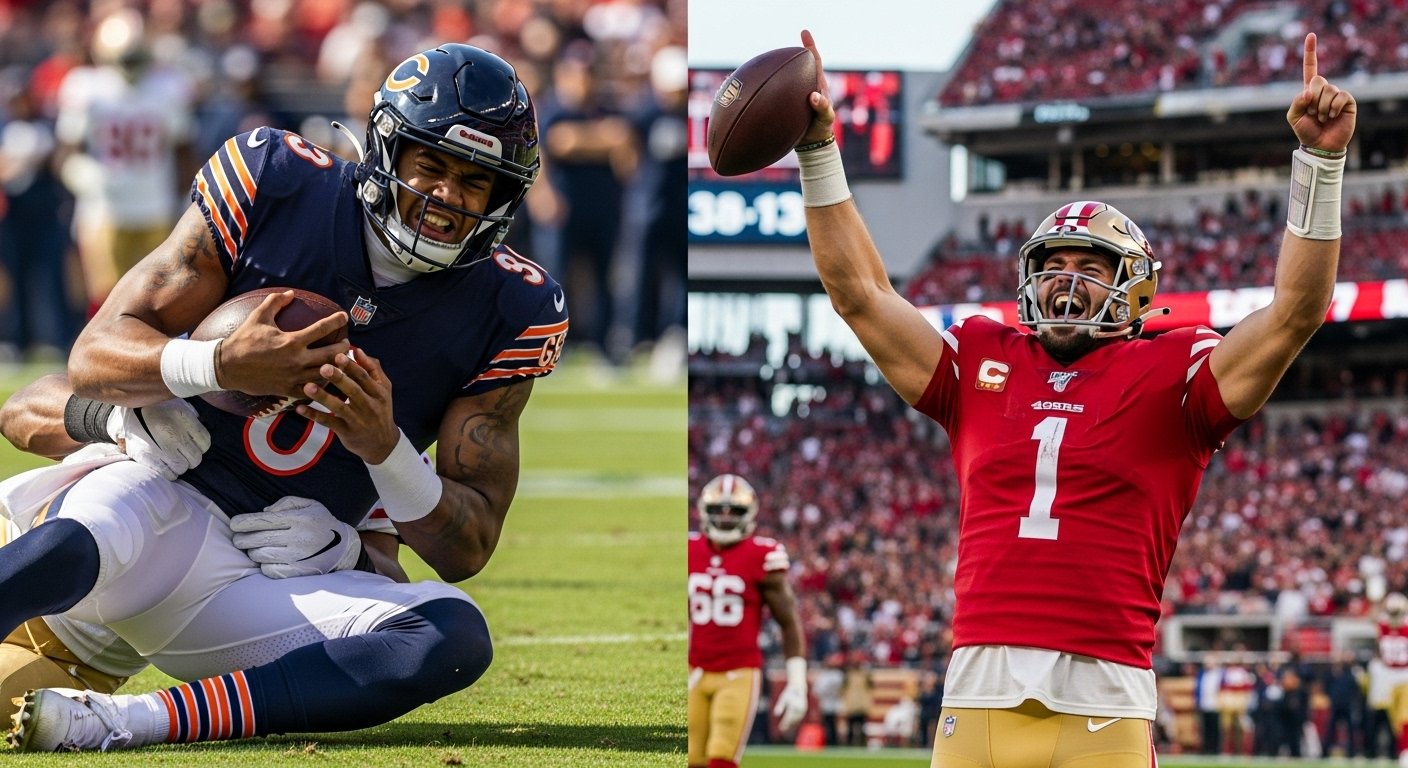
Chicago Bears vs San Francisco 49ers Match Player Stats (Dec 8, 2024)
San Francisco destroyed Chicago 38 to 13 at Levi’s Stadium on December 8, 2024. The 49ers outgained the Bears 319 to 4 in the first half, the largest yardage differential in any NFL game that season. Brock Purdy completed 20 of 25 passes for 325 yards and two touchdowns. George Kittle caught six passes for 151 yards, becoming the third tight end ever to reach 500 catches and 7,000 yards in his first eight seasons. Jauan Jennings hauled in seven receptions for 90 yards with two scores. Caleb Williams completed 17 of 23 passes for 134 yards but took seven sacks for 46 yards lost.
Table of Contents
Passing Performance Breakdown
San Francisco 49ers Passing
| Player | Completions | Attempts | Yards | TDs | INTs | Rating | Sacks |
|---|---|---|---|---|---|---|---|
| Brock Purdy | 20 | 25 | 325 | 2 | 0 | 145.4 | 1 |
| Brandon Allen | 0 | 1 | 0 | 0 | 1 | 0.0 | 0 |
| Team Total | 20 | 26 | 325 | 2 | 1 | 127.9 | 1 |
Purdy picked apart Chicago’s secondary with an 80% completion rate and 145.4 passer rating. Both touchdown passes went to Jennings, a seven-yarder on the opening drive and a 16-yard strike midway through the second quarter. The only blemish came in garbage time when backup Brandon Allen threw an interception to Jonathan Owens with 1:59 remaining.
San Francisco’s offensive line gave Purdy clean pockets throughout the game. He took just one sack while attempting 25 passes, giving him time to operate.
Chicago Bears Passing
| Player | Completions | Attempts | Yards | TDs | INTs | Rating | Sacks |
|---|---|---|---|---|---|---|---|
| Caleb Williams | 17 | 23 | 134 | 2 | 0 | 116.9 | 7 |
| Tyson Bagent | 1 | 1 | 6 | 0 | 0 | 91.7 | 0 |
| Team Total | 18 | 24 | 140 | 2 | 0 | 116.7 | 7 |
The rookie quarterback extended his interception-free streak to 255 consecutive attempts, setting both Bears franchise and NFL rookie records. Both touchdown passes went to Rome Odunze in the second half when San Francisco already led by multiple scores.
Rushing Battle
San Francisco 49ers Rushing
| Player | Carries | Yards | Average | TDs | Long |
|---|---|---|---|---|---|
| Isaac Guerendo | 15 | 78 | 5.2 | 2 | 30 |
| Patrick Taylor Jr. | 7 | 25 | 3.6 | 1 | 7 |
| Deebo Samuel | 5 | 13 | 2.6 | 0 | 8 |
| Brock Purdy | 5 | 11 | 2.2 | 0 | 5 |
| Ke’Shawn Vaughn | 2 | 4 | 2.0 | 0 | 3 |
| Team Total | 34 | 131 | 3.9 | 3 | 30 |
San Francisco controlled the ground game with 131 rushing yards on 34 carries. Guerendo made his first NFL start with Christian McCaffrey and Jordan Mason both on injured reserve. The rookie from Louisville gained 78 yards on 15 carries with two touchdowns. Taylor added a three-yard scoring run with 5:15 remaining to cap the scoring.
Chicago Bears Rushing
| Player | Carries | Yards | Average | TDs | Long |
|---|---|---|---|---|---|
| D’Andre Swift | 14 | 38 | 2.7 | 0 | 8 |
| Caleb Williams | 4 | 27 | 6.8 | 0 | 10 |
| Darrynton Evans | 3 | 3 | 1.0 | 0 | 4 |
| Team Total | 21 | 68 | 3.2 | 0 | 10 |
Chicago couldn’t establish any ground game against San Francisco’s front seven. Swift gained just 38 yards on 14 carries, a 2.7-yard average that left the Bears in predictable passing situations. Williams added 27 yards scrambling while trying to escape pressure. The Bears finished with 68 rushing yards, 63 yards behind San Francisco.
Receiving Production
George Kittle Makes History
Kittle became the third tight end in NFL history to reach 500 receptions and 7,000 receiving yards in his first eight seasons, joining Travis Kelce and Hall of Famer Antonio Gates according to 49ers.com.
San Francisco 49ers Receiving
| Player | Receptions | Targets | Yards | Average | TDs | Long |
|---|---|---|---|---|---|---|
| George Kittle | 6 | 6 | 151 | 25.2 | 0 | 33 |
| Jauan Jennings | 7 | 8 | 90 | 12.9 | 2 | 39 |
| Isaac Guerendo | 2 | 2 | 50 | 25.0 | 0 | 27 |
| Deebo Samuel | 2 | 3 | 22 | 11.0 | 0 | 20 |
| Ricky Pearsall | 1 | 2 | 5 | 5.0 | 0 | 5 |
| Eric Saubert | 1 | 1 | 4 | 4.0 | 0 | 4 |
| Kyle Juszczyk | 1 | 2 | 3 | 3.0 | 0 | 3 |
Kittle caught all six targets for 151 yards, a perfect performance. Five catches gained more than 20 yards, repeatedly putting San Francisco in scoring position.
Jennings caught seven passes on eight targets with two touchdowns. The opening possession ended with his seven-yard scoring grab. Midway through the second quarter, he caught a 16-yard pass and dove across the goal line. Both scores came on third down, extending drives where Chicago’s defense desperately needed stops.
Guerendo gained 50 receiving yards on two catches, averaging 25 yards per reception out of the backfield.
Chicago Bears Receiving
| Player | Receptions | Targets | Yards | Average | TDs | Long |
|---|---|---|---|---|---|---|
| DJ Moore | 6 | 8 | 49 | 8.2 | 0 | 14 |
| Rome Odunze | 4 | 5 | 42 | 10.5 | 2 | 17 |
| Keenan Allen | 3 | 5 | 30 | 10.0 | 0 | 14 |
| Travis Homer | 3 | 3 | 11 | 3.7 | 0 | 6 |
| Collin Johnson | 1 | 1 | 6 | 6.0 | 0 | 6 |
| D’Andre Swift | 1 | 2 | 2 | 2.0 | 0 | 2 |
Moore led Chicago with six catches but gained just 49 yards on eight targets. Allen set an NFL record by recording his 950th career reception faster than any player in league history. Individual milestones provided little consolation in a blowout loss.
Odunze provided the only bright spots with two touchdown catches in garbage time. A 16-play, 70-yard drive that consumed 9:04 of clock in the third quarter ended with his four-yard score. With 11:48 left in the fourth quarter, he caught a 14-yard touchdown pass that cut the deficit to 31 to 13.
Defensive Domination
San Francisco’s pass rush buried Williams seven times while recording seven tackles for loss and seven quarterback hits according to Pro Football Reference. The defensive line won consistently without Nick Bosa, who missed his third straight game with hip and oblique injuries.
San Francisco 49ers Defense
| Player | Total Tackles | Solo | Sacks | TFL | Pass Deflections |
|---|---|---|---|---|---|
| De’Vondre Campbell | 7 | 6 | 0 | 0 | 0 |
| Charvarius Ward | 5 | 4 | 0 | 0 | 0 |
| Talanoa Hufanga | 5 | 2 | 0 | 0 | 0 |
| Malik Mustapha | 5 | 2 | 0 | 0 | 0 |
| Yetur Gross-Matos | 4 | 4 | 3 | 3 | 0 |
| Fred Warner | 3 | 1 | 0 | 0 | 0 |
| Dee Winters | 3 | 3 | 0 | 0 | 1 |
| Sam Okuayinonu | 3 | 3 | 0 | 0 | 1 |
| Leonard Floyd | 2 | 2 | 2 | 2 | 0 |
| Maliek Collins | 1 | 1 | 1 | 1 | 0 |
Gross-Matos had three sacks and three tackles for loss. Floyd added two sacks from the opposite edge. Collins got one from the interior. The pass rush won with four-man fronts using inside moves and stunts that Chicago’s offensive line struggled to stop.
Campbell led all tacklers with seven stops in coverage and run support. Ward, Hufanga, and Mustapha each recorded five tackles in the secondary.
Chicago Bears Defense
| Player | Total Tackles | Solo | Sacks | TFL | Pass Deflections |
|---|---|---|---|---|---|
| T.J. Edwards | 10 | 6 | 1 | 2 | 1 |
| Tremaine Edmunds | 8 | 3 | 0 | 0 | 0 |
| Jonathan Owens | 7 | 5 | 0 | 0 | 1 |
| Kyler Gordon | 7 | 5 | 0 | 0 | 0 |
| Kevin Byard III | 5 | 3 | 0 | 0 | 1 |
| Zacch Pickens | 5 | 3 | 0 | 0 | 0 |
| Jaylon Johnson | 4 | 4 | 0 | 2 | 1 |
Edwards led the team with 10 tackles and recorded Chicago’s only sack. The Bears couldn’t generate consistent pass rush against a 49ers offensive line missing multiple starters. San Francisco gained 452 total yards while Chicago’s defense gave up big gains repeatedly.
Field Position and Special Teams Impact
Taylor punted six times to O’Donnell’s two. His workload showed which team controlled the game. The special teams battle reflected the overall game flow with San Francisco dominating time of possession and forcing Chicago into constant three-and-outs.
Kicking Performance
| Team | Kicker | FG Made/Att | FG% | Long | XP Made/Att | Points |
|---|---|---|---|---|---|---|
| 49ers | Jake Moody | 1/1 | 100.0% | 23 | 5/5 | 8 |
| Bears | Cairo Santos | 0/0 | N/A | 0 | 1/1 | 1 |
Moody converted his only field goal attempt, a 23-yarder in the second quarter after a holding penalty negated a Purdy touchdown run. He hit all five extra points. Santos only attempted one extra point after Odunze’s second touchdown. Chicago never threatened the end zone often enough for field goal opportunities.
Punting Battle
| Team | Punter | Punts | Yards | Average | Inside 20 | Long |
|---|---|---|---|---|---|---|
| 49ers | Pat O’Donnell | 2 | 92 | 46.0 | 1 | 47 |
| Bears | Tory Taylor | 6 | 316 | 52.7 | 2 | 60 |
Taylor’s 52.7-yard average and two punts inside the 20 were impressive, but six punts meant six failed offensive possessions. O’Donnell punted twice all game because San Francisco sustained drives and scored touchdowns.
Returns
| Team | Player | Type | Returns | Yards | Average | Long |
|---|---|---|---|---|---|---|
| Bears | Josh Blackwell | Punt | 1 | 14 | 14.0 | 14 |
| Bears | DeAndre Carter | Kick | 1 | 25 | 25.0 | 25 |
| 49ers | Jacob Cowing | Punt | 4 | 22 | 5.5 | 8 |
Carter returned one kickoff for 25 yards before leaving with a hamstring injury in the first quarter. Blackwell’s 14-yard punt return gave Chicago decent field position once. No explosive plays materialized in the return game for either team.
Historic First Half Domination
Four yards in 30 minutes. Chicago’s offense generated four total yards in the first half at Levi’s Stadium on December 8, 2024. San Francisco outgained the Bears 319 to 4, the largest yardage differential in any NFL game that season.
First Half Statistical Breakdown
| Category | Chicago | San Francisco |
|---|---|---|
| Total Yards | 4 | 319 |
| First Downs | 1 | 14 |
| Passing Yards | -3 | 258 |
| Rushing Yards | 7 | 61 |
| Third Down | 0/5 | 4/6 |
| Time of Possession | 11:48 | 18:12 |
The Bears punted five times before halftime and never crossed midfield. Williams completed four of eight passes for 27 yards but took four sacks for 30 yards, leaving Chicago with negative three net passing yards. The rushing attack managed just seven yards on nine carries.
San Francisco scored on four of five first-half possessions. Touchdowns came on the first, third, and fifth drives. A field goal followed on the fourth possession after a holding penalty. Only the second drive ended without points when they punted from midfield.
Purdy completed 16 of 18 passes for 258 yards and two touchdowns before halftime. Kittle had five catches for 138 yards in the first two quarters alone. The 49ers led 24 to 0 at the break with the game effectively decided.
Caleb Williams Under Constant Pressure
The 49ers defensive line destroyed Chicago’s offensive line. Williams took seven sacks for 46 yards lost, the stat that buried Chicago.
His performance under pressure according to ESPN:
Caleb Williams Pressure Statistics
- Pressured on 25% of dropbacks
- 8 total pressures (7 sacks, 1 hit)
- 0 hurries recorded
- Scrambled twice for 27 yards
The rookie entered Week 14 as the most sacked quarterback in the NFL with 56 through 13 games. Adding seven more gave him 63 on the season, the most by any Chicago quarterback since the 1970 merger.
San Francisco’s pass rush won with inside moves and stunts. Gross-Matos wrecked plays with speed-to-power rushes from the edge. Floyd attacked from the opposite side with outside speed. Collins penetrated up the middle on passing downs. The four-man rush collapsed the pocket without blitzing.
Williams extended his streak without throwing an interception to 255 consecutive attempts, breaking both the Bears franchise record and the NFL rookie record. The clean streak provided little consolation in a blowout loss.
“We got our butt kicked today,” Williams said after the game per the Chicago Bears official recap. “There’s no way around it. We got it handed to us. Offense, defense, special teams, we have to come out and be better.”
Isaac Guerendo’s Breakout Performance
Guerendo’s 128 yards from scrimmage validated San Francisco’s decision to hand him the starting role. With Christian McCaffrey and Jordan Mason both on injured reserve, the rookie from Louisville showed he can be a dual-threat weapon out of the backfield. His 78 rushing yards came on just 15 carries while adding 50 receiving yards on two catches.
The fourth-round pick scored twice, punching in short touchdown runs in the first and fourth quarters. More importantly, he contributed as a receiver with two catches averaging 25 yards per reception. That versatility gives San Francisco options they desperately needed after losing their top two running backs.
A foot injury forced Guerendo out in the fourth quarter. Kyle Shanahan said after the game it might be a sprain. McCaffrey had suffered a season-ending PCL injury in San Francisco’s 35 to 10 loss at Buffalo one week earlier, forcing the 49ers to turn to their fourth-round pick. The rookie delivered when his team needed him most.
Kittle’s Historic Achievement
Six catches on six targets for 151 receiving yards. Kittle’s perfect performance made him the third tight end in NFL history to reach 500 receptions and 7,000 receiving yards in his first eight seasons. His 25.2 yards per catch average produced multiple explosive plays that kept Chicago’s defense scrambling.
George Kittle Career Milestones
Through Eight Seasons:
- 500 receptions (exactly)
- 7,011 receiving yards
- 48 touchdown catches
Only Travis Kelce and Hall of Famer Antonio Gates had accomplished this feat before. The achievement came with both milestones in the same game, cementing Kittle’s place among the greatest tight ends in NFL history. His ability to produce chunk gains after the catch has defined his career, and this performance showcased exactly why he’s considered elite at his position.
“We just got back to being us, honestly,” linebacker Fred Warner said after the game. “The product we were putting on the field the last couple weeks just wasn’t us. We knew that. We had a great opportunity this week to come out at home and right those wrongs and get back to playing our style and what we do best.”
San Francisco had dropped back-to-back road games at Green Bay and Buffalo before hosting Chicago, getting outscored by 53 points in those two losses. Against the Bears, they looked like the Super Bowl contender from ten months earlier.
Thomas Brown’s Disastrous Debut
The Bears fired Matt Eberflus on November 29 after a clock management disaster against Detroit. Brown, the offensive coordinator, got promoted to interim head coach. Eric Washington took over defensive play calling. All those changes were supposed to spark better performance.
Chicago got destroyed instead. The offense generated just four yards in an entire half. The defense allowed 319 yards before halftime. The coaching change produced no immediate improvement as Chicago went three and out on their first three possessions while falling behind 21 to 0.
Brown addressed the media after the loss: “I’ll always be straightforward, honest and open about things that transpired. We’ve got to do a better job of putting in a better game plan on both sides of the ball so we execute better. Obviously I will continue to challenge our guys to be at their best. Also encourage those guys and also demand that we still stay unified.”
The Bears fell to 4 and 9 with their seventh consecutive loss. Brown had praised the team’s preparation during the week, noting harder practices and better focus. Chicago went three and out on their first three possessions.
Critical Situations and Execution
Efficiency Comparison
| Category | Chicago | San Francisco |
|---|---|---|
| Red Zone Trips | 2 | 6 |
| Red Zone TDs | 2 | 5 |
| Red Zone FGs | 0 | 1 |
| Red Zone Success | 100% | 100% |
| Third Down Conv | 4/10 (40%) | 6/12 (50%) |
| Fourth Down Conv | 0/0 | 2/2 (100%) |
| Time of Possession | 28:12 | 31:48 |
Both teams scored every time they reached the red zone, but San Francisco got there six times compared to Chicago’s two trips. The 49ers scored touchdowns on five of six red zone possessions. Their only field goal came after a holding penalty on Ricky Pearsall negated a Purdy touchdown run in the second quarter.
Chicago’s two red zone possessions both occurred in garbage time after San Francisco built an insurmountable lead. Odunze’s four-yard touchdown capped a 16-play, 70-yard drive that consumed 9:04 of clock in the third quarter. His 14-yard score came with 11:48 left in the fourth quarter.
San Francisco converted third downs at a 50% rate compared to Chicago’s 40%. Purdy’s 23-yard completion to Guerendo on third and three kept the opening drive alive. His 18-yard strike to Kittle on third and eight extended a second-quarter possession that led to Jennings’ second touchdown.
Chicago went 0 for 5 on third down in the first half, unable to sustain drives or establish any rhythm. Four of those failures came on sacks where Williams never had a chance to convert.
Playoff Implications and Season Context
San Francisco 49ers (6-7)
The 49ers snapped a three-game losing streak with their most complete performance of the season. They scored 38 points while generating seven sacks on defense. Both sides of the ball finally executed at the level everyone expected before Week 1.
At 6 and 7 with four games remaining, their playoff hopes stayed alive but required help. The NFC wild card race was packed with teams at 7 and 6 or 6 and 7. San Francisco needed to win out and have multiple teams ahead of them lose. The path was narrow but mathematically possible.
Kyle Shanahan addressed the team Saturday night before the game. Purdy and cornerback Deommodore Lenoir spoke to their teammates about playing with urgency and desperation after three straight losses.
“The message was we need to play with more of a sense of urgency and play desperate,” Kittle said per the team’s official coverage. “Because you just hadn’t really sensed that.”
The 49ers hosted the Los Angeles Rams on Thursday Night Football four days later. The quick turnaround tested their depth against a Rams team competing for playoff position. A win would keep San Francisco’s postseason hopes realistic with three games remaining. A loss would effectively end their season at 6 and 8 with too many teams ahead of them. This dominant win over Chicago kept them in playoff contention with four games remaining.
Chicago Bears (4-9)
The Bears fell to 4 and 9 with their seventh consecutive loss. Playoff hopes had died weeks earlier. They were playing out a lost season while evaluating talent and coaching for the future.
The offense couldn’t protect Williams, couldn’t establish the run, and couldn’t convert third downs. The defense surrendered chunk play after chunk play. Special teams provided no impact plays.
Chicago traveled to Minnesota for Monday Night Football the following night. The Vikings were chasing the NFC North title with Sam Darnold playing career-best football. The Bears needed massive improvement or faced another blowout loss on national television. Finishing above .500 became mathematically impossible at 4 and 9. The focus shifted entirely to player development and evaluation heading into the offseason.
Complete Team Statistics
| Category | Chicago | San Francisco |
|---|---|---|
| First Downs | 14 | 22 |
| Total Yards | 162 | 452 |
| Yards Per Play | 3.1 | 8.7 |
| Passing Yards | 94 | 321 |
| Rushing Yards | 68 | 131 |
| Turnovers | 1 | 1 |
| Third Down | 4/10 (40%) | 6/12 (50%) |
| Fourth Down | 0/0 | 2/2 (100%) |
| Red Zone | 2/2 (100%) | 6/6 (100%) |
| Time of Possession | 28:12 | 31:48 |
| Penalties | 2-30 | 7-31 |
| Sacks Allowed | 7 | 1 |
San Francisco dominated every major statistical category except turnovers, where both teams committed one. The 49ers averaged 8.7 yards per play compared to Chicago’s 3.1. They controlled possession by nearly four minutes and converted both fourth down attempts while the Bears never tried one.
The sack differential (7 to 1) illustrates how thoroughly San Francisco won at the line of scrimmage. Chicago’s offense couldn’t protect Williams long enough for plays to develop. The Bears’ defense couldn’t pressure Purdy or stop San Francisco’s skill position players.
Performance Analysis and Takeaways
San Francisco won the first down battle 22 to 14, the yardage battle 452 to 162, and the sack battle 7 to 1. The offensive line protected Purdy while the defensive line collapsed Chicago’s protection with inside moves and stunts.
Purdy completed 80% of his passes for 325 yards. Kittle made history while averaging 25.2 yards per catch. Jennings caught two touchdowns on crucial third-down conversions. Guerendo proved he can be a legitimate dual-threat weapon in his first start.
Gross-Matos, Floyd, and Collins combined for six sacks using four-man pressure packages. The Bears managed just 162 total yards, 290 fewer than San Francisco.
Williams showed toughness by getting back up after seven sacks. He extended his interception-free streak to 255 attempts, setting Bears franchise and NFL rookie records. Odunze caught two touchdown passes. But Chicago’s offensive line got destroyed, their defense surrendered chunk plays, and their coaching staff had no answers.
Chicago gained negative three passing yards before halftime. The Bears went 0 for 5 on third down in the first half while San Francisco built a 24 to 0 lead that made the second half meaningless.
San Francisco looked like the Super Bowl contender from last season. Chicago looked like a team ready for the offseason. The Chicago Bears vs San Francisco 49ers match player stats capture one of the most lopsided performances of the 2024 NFL season. For complete box scores and detailed game statistics, check Pro Football Reference and ESPN’s official game recap.

